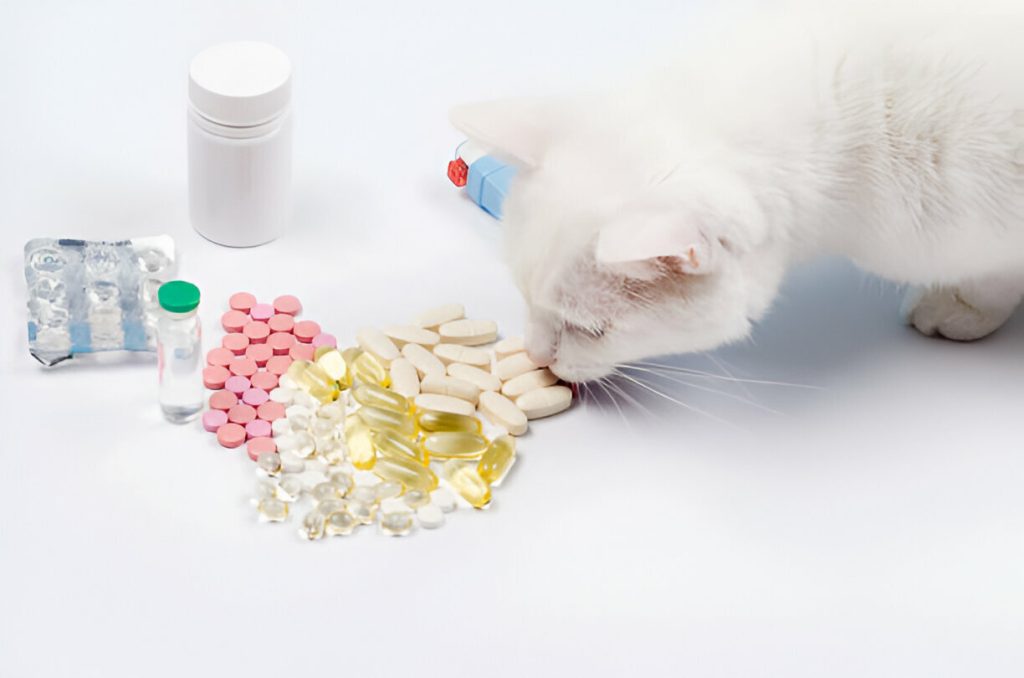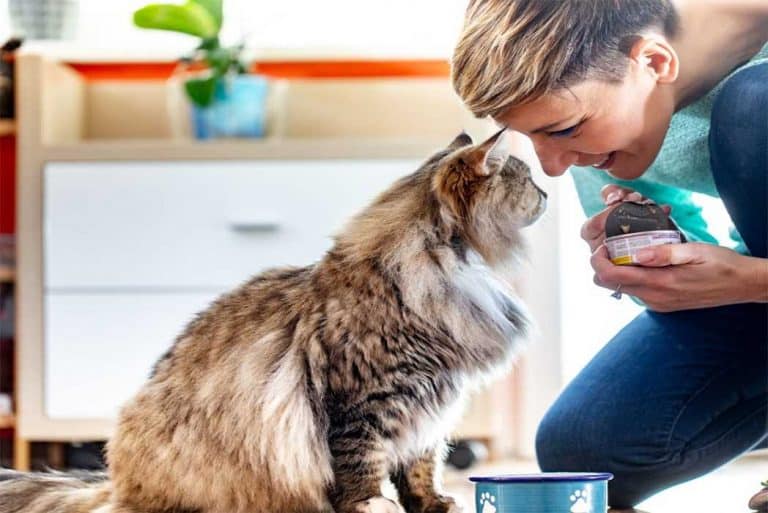Albon for Cats: A Closer Look at Dosage, Administration, and Potential Side Effects

Albon, a brand name for the antimicrobial drug sulfadimethoxine, is commonly prescribed by veterinarians for cats to treat a variety of bacterial infections, including those affecting the respiratory and urinary tracts, as well as other systemic infections. Its unique ability to inhibit the growth and multiplication of bacteria ensures it remains a go-to option for many bacterial challenges in feline patients.
Determining the appropriate dosage of Albon for cats is a meticulous process, considering factors such as the cat’s weight, the severity of the infection, and the cat’s overall health status. Typically, veterinarians recommend an initial higher dose, followed by a reduced maintenance dose given over a course of days or weeks, depending on the type of infection and the response to the treatment. Precise measurement is crucial, as an incorrect dosage may not only be ineffective but could also lead to resistance or other complications.
Administration of Albon in cats requires patience and a certain finesse, as anyone who has ever attempted to give medication to a feline can attest. Albon comes in both tablet and liquid forms, with the choice often depending on the cat’s temperament and the owner’s dexterity. Some cat owners may find administering tablets challenging and might opt for the liquid form, which can be mixed with food or administered directly. Monitoring the cat’s intake to ensure the full dosage is consumed is important for the medication’s efficacy.
However, Albon is not without its potential side effects. While many cats tolerate the medication well, others may experience adverse reactions such as vomiting, diarrhea, or loss of appetite. More severe effects, although rarer, can include allergic reactions or blood cell impacts, necessitating prompt veterinary intervention. Regular monitoring and communication with a veterinarian can mitigate these risks and ensure any side effects are addressed swiftly.
The subtleties of interaction between Albon and other medications a cat may be taking is an essential consideration for pet owners. In the following section, the potential drug interactions, along with recommendations for owners to manage their pet’s health during treatment with Albon, will be discussed. This includes a discussion on the importance of maintaining hydration, monitoring for signs of an adverse reaction, and the necessity of completing the full course of medication even if the cat appears to have recovered.
As the saying goes, curiosity may have killed the cat, but in the case of Albon, careful attention to detail will ensure that curiosity merely equips feline aficionados with the knowledge to see their pets through treatment unscathed. With a comprehensive understanding of Albon’s application in feline medicine, cat owners can feel confident in their ability to support their furry companions through the haze of bacterial infections towards a clear bill of health.
- Albon (sulfadimethoxine) is an antibiotic medication used to treat bacterial infections in cats, specifically targeting conditions such as coccidiosis and some respiratory infections.
- The appropriate dosage of Albon for cats is determined by the feline’s weight and the severity of the infection, and it is typically administered in oral form either as a tablet or a suspension.
- Veterinarians usually prescribe Albon for a course ranging from 10-14 days, and it’s crucial for pet owners to follow the prescribed duration of treatment to avoid a resurgence of the infection.
- Albon can potentially interact with other medications, so it’s essential to inform the vet about any other ongoing treatments or underlying health conditions the cat may have.
- Common side effects of Albon in cats include vomiting, diarrhea, and loss of appetite. While most side effects are mild, any severe or prolonged symptoms should be reported to a veterinarian.
- In cases of overdose or an adverse reaction, cats may experience more serious side effects such as jaundice, blood dyscrasias, or allergic reactions, requiring immediate medical attention.
- To ensure proper administration of Albon, pet owners should measure liquid suspensions accurately and follow guidance on whether the medication should be taken with food.
- Prolonged use of Albon may lead to complications such as thiamine deficiency due to its effects on intestinal flora, hence monitoring the overall health and nutritional intake of the cat is important during treatment.
- Recovery signs to watch for include an improvement in symptoms, increase in energy, and return of appetite, indicating the infection is responding to the Albon treatment.

What Should You Know About Dosage and Side Effects When Treating Your Cat with Albon?
Understanding the term ‘albon cats’ requires a familiarity with common veterinary pharmaceutical terminology. Albon is the brand name for a drug known as sulfadimethoxine, which is an antibiotic used to treat bacterial infections in cats, as well as dogs. When you come across ‘dosage’, it refers to the precise amount of medication prescribed to be taken at one time or over a certain period. ‘Administration’ is how the drug is given, whether orally or by injection. ‘Potential side effects’ are any secondary or unintended effects the drug may have, some of which may warrant attention from a veterinarian.
Sulfadimethoxine, the active ingredient in Albon, belongs to a class of drugs known as sulfonamides. These drugs work by inhibiting the growth and proliferation of bacteria, thereby aiding the animal’s immune system in fighting off the infection. Its use is particularly indicated for the treatment of respiratory, urinary tract, gastrointestinal, and soft tissue infections caused by specific strains of bacteria. For cats, Albon provides a way to address these infections effectively, but its application must be precisely measured and monitored due to the varying sensitivities of cats to antibiotics and their potential to cause adverse reactions in different doses.
Pet Medication Safety Protocols
In ensuring the safety of pet medications, it is imperative to follow a stringent set of protocols that start with the prescription process, through to the dispensation and administration of these drugs. Veterinarians must conduct a thorough examination and consider the pet’s medical history before prescribing any medication. Equally important is the education of pet owners on proper dosage and the importance of adhering to prescribed schedules. Measures include child-proof containers and clear labeling that specifies the medication name, the pet it is intended for, the dosage, and the administration frequency. Moreover, potential side effects must be communicated effectively, with instructions on what steps to take if adverse reactions occur. The integration of these safety protocols ensures a comprehensive approach to maintaining the well-being of pets under medication treatment.
Advances in Veterinary Pharmacology
The field of veterinary pharmacology has seen significant advancements in recent years, with the development of drugs that are more effective and have fewer side effects. These developments have stemmed from a deeper understanding of animal physiology and the molecular basis of disease. New classes of drugs have been engineered to target specific pathways within the animal body with greater precision, leading to improved outcomes in the treatment of a wide array of conditions. Additionally, the adoption of sustained-release formulations and transdermal delivery systems has increased the options for medication administration, offering both convenience and a reduced risk of non-compliance. With the growth of personalized medicine, treatments can now be more tailored to individual animals, taking into account factors like breed, size, and genetic makeup.
Comprehensive Guide to Administering Pet Medications
Administering medication to pets requires patience, precision, and an understanding of animal behavior. Each mode of drug administration, whether oral, injectable, or transdermal, comes with its own set of techniques and considerations. Oral medications may come in the form of tablets, capsules, or liquids, and pet owners must learn how to effectively administer these without causing distress to the animal. Injectables call for careful handling and knowledge of the appropriate injection site to minimize discomfort. Transdermal methods provide an alternative for pets that resist conventional routes but require an understanding of skin permeability and proper site preparation. The importance of following veterinary guidance for each administration method cannot be overstated, ensuring that the medication performs its intended therapeutic effect.
Understanding Pet Medication Interactions
When pets are prescribed multiple medications, there is a potential risk for drug interactions that could diminish treatment effectiveness or even result in harm. It is critical for pet caregivers and veterinarians to meticulously review the pet’s medication regimen to identify any possible interactions. Factors such as the concurrent use of over-the-counter supplements, dietary considerations, and the pet’s pre-existing conditions, play a crucial role in understanding the pharmacokinetics and pharmacodynamics involved. Software tools and databases are now widely available for veterinary professionals to evaluate potential drug interactions and adjust prescriptions accordingly. Pet owners should be educated on the importance of disclosing all substances their pet is receiving and be vigilant about monitoring their pets for any signs of adverse reactions when changes to medication occur.
What is Albon and when is it prescribed for cats?
Albon is the brand name for the antibiotic sulfadimethoxine, which is commonly used in veterinary medicine to treat infections caused by certain types of bacteria and protozoans. It is oftentimes prescribed for cats suffering from respiratory, urinary tract, or gastrointestinal infections, as well as other types of infections that are sensitive to this particular antibiotic. Albon is effective against a range of bacterial organisms and is also used to treat coccidiosis, an intestinal parasitic infection.
The decision to prescribe Albon for a cat will generally be made by a veterinarian following a diagnosis that indicates a susceptibility to the drug. The vet will take into account the type of infection, the severity of symptoms, and the cat’s medical history before determining if Albon is the most suitable treatment option.
How should Albon be administered to cats?
Albon is available in various forms, including tablets, oral suspension, and injectable solutions. The method of administration will depend on the form prescribed by the veterinarian and the preferences or specific needs of the cat. Tablets are typically given orally and can be mixed with food to encourage the cat to ingest them. Oral suspensions are also administered by mouth, using a dropper or a syringe to measure and deliver the correct dose. The injectable form is generally used in a clinical setting by a professional.
Regardless of the form, it is crucial to follow the veterinarian’s instructions on dosage and frequency. Consistency in administration at the same time each day is important to maintain effective levels of the medication in the cat’s system, and treatment should continue for the full duration prescribed, even if symptoms seem to improve before the course is completed.
What is the typical dosage of Albon for cats?
The dosage of Albon prescribed for cats can vary depending on the weight of the cat and the severity of the infection being treated. A common initial dosage is 25mg per pound (50mg/kg) of body weight for the first day, followed by a maintenance dose of half the initial dose for the remainder of the treatment period. The treatment usually spans 10-14 days, but the exact duration will be determined by the veterinarian based on the cat’s response to therapy.
It is critical to accurately dose the medication according to the veterinarian’s instructions. Underdosing might lead to ineffective treatment and resistance, whereas overdosing can cause serious side effects. Therefore, if you are unsure of the correct dosage or have any concerns, it is important to consult with the prescribing veterinarian.
Are there potential side effects when using Albon for cats?
As with any medication, there is a potential for side effects with the use of Albon. Commonly reported side effects in cats may include vomiting, diarrhea, anorexia (loss of appetite), lethargy, or allergic reactions. If any of these side effects are observed, it is crucial to report them to the veterinarian. Severe allergic reactions would require immediate medical attention.
Other rare but serious side effects can include blood disorders and liver or kidney damage. Continuous monitoring by the veterinarian through follow-up visits and potentially blood tests may be recommended to check for these more serious effects and ensure that the cat is responding properly to the medication.
Can Albon interact with other medications?
Albon can interact with other medications, so it is essential to inform the veterinarian about any other treatments, supplements, or over-the-counter medications the cat is receiving. For example, Albon can interact with anticoagulants, resulting in an increased risk of bleeding, or with some other antibiotics, which can either decrease the effectiveness of the treatments or increase the chance of side effects.
Further, interactions with thiazide diuretics could lead to an increased risk of thrombocytopenia, a condition characterized by an abnormally low count of platelets in the blood. Always consult the veterinarian before combining any medications with Albon, and mention any changes in the cat’s medications during the course of treatment.
How can I monitor my cat for side effects of Albon?
While your cat is on Albon, it’s important to closely monitor their behavior and physical health for any signs of side effects. Look for changes in appetite, unusual lethargy, vomiting, diarrhea, or signs of an allergic reaction such as swelling, rash, or difficulty breathing. Keep a journal or log of any symptoms and their frequency to provide detailed information to the veterinarian if necessary.
If any side effects are noted, contact your veterinarian promptly for advice. They might adjust the dosage, prescribe a different medication, or provide supportive care to mitigate these effects. Never attempt to treat these side effects on your own without veterinary guidance, as this can worsen the situation or mask underlying problems.
What should I do if I miss a dose of Albon for my cat?
If you miss a dose of Albon, administer it as soon as you remember. However, if it is almost time for the next scheduled dose, skip the missed dose and continue with the regular dosing schedule. Do not double up or give extra doses as this can increase the risk of overdose and side effects. Maintaining a regular dosing schedule ensures the effectiveness of the treatment and reduces the likelihood of resistance developing.
If missed doses are a frequent problem, setting reminders on your phone or using a medication log might help maintain consistency. Always contact your veterinarian if you have missed more than one dose or if you are unsure about how to proceed after a missed dose. They can provide the best course of action for your cat’s specific situation.
What precautions should be taken when storing Albon?
Albon should be stored in a safe place, away from direct sunlight, moisture, and heat. The tablets should be kept in their original packaging, and if you are using the oral suspension, ensure the bottle is tightly sealed and stored according to the label’s instructions, typically in a cool and dry place. It’s important to keep all medications out of reach of children and pets, as accidental ingestion could be harmful.
Additionally, it’s critical to check expiration dates and dispose of any expired medication properly. Do not pour unused medication down the drain or toilet or throw it directly into the trash. The veterinarian or a local pharmacy can advise on safe disposal methods to prevent environmental contamination or accidental exposure to other pets and wildlife.
Can Albon be used for kittens?
Albon may be prescribed for kittens with bacterial or protozoal infections; however, dosages will often differ from those for adult cats due to the differences in metabolism and the developing bodies of kittens. Veterinarians will calculate the dosage carefully, taking into account the age, weight, and health of the kitten, to ensure it is both safe and effective.
It’s particularly important to follow the veterinarian’s instructions when administering Albon to kittens, as they can be more sensitive to medications and are at a greater risk of side effects. Continuous monitoring is also more crucial for kittens under medication, and any concerns should be promptly discussed with the veterinarian.
Are there any long-term risks associated with using Albon in cats?
When used correctly and under the supervision of a veterinarian, Albon is generally safe for cats. However, as with any medication, long-term use or repeated courses of Albon may increase the risk of side effects or lead to antibiotic resistance. Some reports suggest that prolonged use could potentially affect the liver or kidneys, so regular monitoring may be necessary if a cat requires long-term treatment.
To mitigate long-term risks, it is essential to use Albon strictly as prescribed and to complete all follow-up appointments with the veterinarian. If the cat has a chronic condition that requires repeated treatments, the veterinarian may explore alternative medications or therapies to avoid or minimize the potential for long-term adverse effects.
Final Thoughts
When it comes to treating bacterial infections in felines, Albon is a widely recognized antibiotic choice for vets. With correct dosage and administration, it can be a game-changer for your cat’s health. Ensuring proper dosage is paramount, as underdosing might lead to resistance and overdosing could result in increased side effects. Typically, a vet will recommend the amount of Albon cats require based on weight and severity of the condition.
Administrating Albon in cats involves oral solutions or tablets and must be given with strict adherence to the vet’s instructions to avoid any complications. It’s crucial to complete the full course even if symptoms improve, to fully eradicate the infection. Albon cats treatments might sometimes trigger side effects such as vomiting, diarrhea, or anorexia; these should be promptly reported to the vet, as they might necessitate dosage adjustments or alternative treatments.
Monitoring your pet for any adverse reactions throughout the treatment course will aid in a smooth recovery. Stick to the vet’s recommendations for follow-up care and reevaluation to ensure the infection has been effectively treated. As owners become more informed about Albon for cats, they can more effectively collaborate with their vets to safeguard the well-being of their feline companions while minimizing potential risks associated with this antibiotic therapy.






